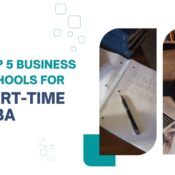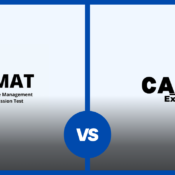
Is Hiring An MBA Consultant Worth It?
MBA consulting is a relatively new profession when compared to conventional careers, including an MBA! If you are reading this, you have probably heard about them and would want to know more. The number of applicants who hire a consultant is increasing every year, given that good business programs are highly competitive to get into. While this was originally a trend in the West, India, and other Eastern countries are slowly catching up, given that MBA acceptance or a scholarship can be a make or break for many. It is not surprising that 46% of applicants said an MBA admissions consultant had assisted them in the process of applying to business school, as per a recent survey by AIGAC (Association of International Graduate Admissions Consultants), and the numbers are set to increase in the coming years. Given this trend, whether one should hire an MBA consultant is a poignant question to ponder upon.
Should You Opt For A Consultant?
While we would advise you to certainly go ahead with a consultant, the final discretion is yours. To find out a conclusive answer, you must ask yourself the following questions:
1. Is the consultant credible?
Credibility is a difficult parameter to measure because it is not intelligible in numbers. However, there are a few factors you can consider to at least get an approximate idea:
- Have they been to business school themselves?
- What is their work experience as a consultant?
- What is their success rate?
- Do you know anyone who has worked with them previously? If yes, what was their experience?
- Are they proactive overall? (Trust us this can be a significant factor in your overall experience while working a Consultant)
A simple way to find answers to these questions is by conducting a Google search. Another key factor, but an often ignored one is ‘Will the person I am promised as my consultant really review the essays, or will someone else do it?’. While it is hard to answer this, an independent consultant might help as they do not have many people to outsource the work to, or you can at least ask them.
If you have a positive answer to the above questions, then it might be considering taking the leap of faith and working with the consultant.
Related Read: 1-year Vs 2-year MBA Programs – Which should you choose?
2. Do you have the finances?
The cost of a consultant can be around 10,000 USD globally and can vary between INR 3 – 5 lakhs domestically within India. It is important to consider the cost factor while considering a B-school consultant. It is in line with the expenses of business school, and add-on costs like living expenses, or GMAT tutoring costs. Make sure this is a part of your overall MBA budget before you engage with one.
There are multiple models within the MBA consulting industry such as large established companies, boutique firms run by a handful of partners and their associates, independent firm where the founder is the main consultant or even independent consultants undertaking engagements on a freelance basis. The cost can vary significantly depending on the model.
3. Do you have enough writing experience?
This implies do you know how to articulate the requirement of the business school essay. Do you write beyond casual blogs, Twitter, Facebook, etc, that is, formal business communication? This includes appraisals, minutes of the meeting, official circulars, etc. Do you get positive feedback from your colleagues/bosses about your writing? This factor not only varies from one person to another but is also differentiated basis the nature of employment and career path. All in all, look for external validation of your writings while evaluating your ability to frame a coherent and effective application.
4. Are you aware of what is needed for every business school?
Most business programs have a few unique features about them. Also, many business schools specialize in a particular field. For example, Stanford is known for its entrepreneurship program, London Business School for its Finance program, etc. You have to maneuver your application accordingly to fit every business school, which is usually a time-consuming process. Sadly, a one size fits all approach does not work in the business school application process and can be quite detrimental to your candidacy.
5. Do you have the time to do it on your own?
If you are applying abroad for an MBA, there is a good chance you are already working. Over and above, you also have to prepare for GMAT while contacting recommenders. This will leave you with very little time to explore the intricacies needed for your application. Also, given that you will most probably be applying to more than one business school, it becomes even harder to distinguish the requirements. In other words, do you have the time and expertise to exercise the required quality control. Most business schools have strict deadlines which often coincide with periods of intense business activities or holiday season, if you don’t have the discipline to meet the deadlines you will miss the bus to your dream MBA.
6. How well do I know my profile?
What are my strengths and weaknesses? Which stories do I highlight in my application? Some may also wonder if they have stories at all, while others believe they are a general candidate, that is, a male engineer in India, and don’t know how to highlight their personality and uniqueness when it comes to the written word. There is individuality to each one, and a good consultant does his or her level best to bring that out in the application even if you have many similarities with everyone else.
Some others belong to a different pool of applicants but are still left wondering how to make their profiles and essays stand out. The point is, you have to know your strengths, and must possess the ability to highlight it effectively, while being aware of your weaknesses. For example, you may have a low GPA in undergraduate or have plateaued in your GMAT, or maybe you do not have the strongest list of recommenders. While nothing can be done about what has passed, a good consultant will help you articulate these drawbacks so that they don’t hinder your admission.
Are you well versed with the nuances so as to not make an error?
We usually get the broad strokes right with respect to test scores, essays, etc. But there are many details that a candidate might overlook unknowingly. For example, how is a transcript different from a degree? How long in advance should transcripts be sent? How is it to be done? What are the scholarships available, and what are their requirements and deadlines? This is where a consultant is helpful, they will make sure you don’t make any avoidable errors.
Hiring a consultant or not is an individual choice, however, given today’s competition a consultant will give you an edge.



